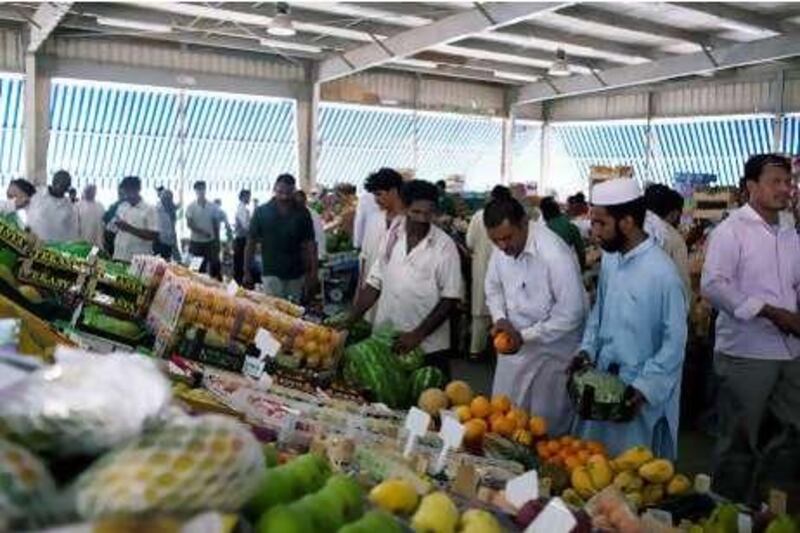The cost of fruit and vegetables at the Mina Zayed market in Abu Dhabi has risen by as much as 25 per cent in the past week despite government efforts to control prices during Ramadan. Almost three weeks ago inspectors began monitoring supermarkets and the Mina Zayed market to ensure prices do not rise with demand during the holy month.
But prices at the market have increased by up to a quarter within the past week as supplies have dwindled, research by The National shows, far more than rises recorded in the same period last year. "The prices have gone up about 25 per cent compared to last week," said Abdul Hadi, a vegetable seller at the market. "The demand is too much so the price goes up." Last year, some prices rose by more than 17 per cent in August. In the first seven days of Ramadan there was a rise of 1.5 per cent in the cost of bread and cereals, 0.4 per cent in fruit juices and 1.5 per cent in sugar, jam, honey, chocolate and confectionery, according to the Statistics Centre-Abu Dhabi.
But over the whole of that month, the price of fish and other seafood increased by 5.2 per cent, pulses and dry grains were up by more than 17 per cent and sugar, jam, honey, chocolate and confectionery by almost 16 per cent. The Abu Dhabi Department of Economic Development (DED) said it would conduct spot checks throughout this holy month to ensure prices remained stable and there were no unjustified increases in the prices of consumer products.
Similar measures are being taken by the Dubai Department of Economic Development, where investigators monitor fruit and vegetable markets as well as food outlets. Sven Mostegl, a capital food consultant, said the Abu Dhabi Government should try to do more to ensure food vendors did not increase prices unfairly. "If we are not careful, some people will take advantage of the increased demand and try to make more profit," he said.
The DED has prepared a plan that identifies four key goals to dealing with the situation. These include raising awareness among consumers and traders to prevent them exploiting consumers as demand increases during the holy month. For the past four years, the Ministry of Economy has helped to compile a low-cost basket of staples such as flour, milk, oil, rice, sugar, dates and water. The basket costs between Dh150 (US$40.83) and Dh200 this year.
As part of the plan, officials have said they will keep shoppers informed of the appropriate prices for goods.





